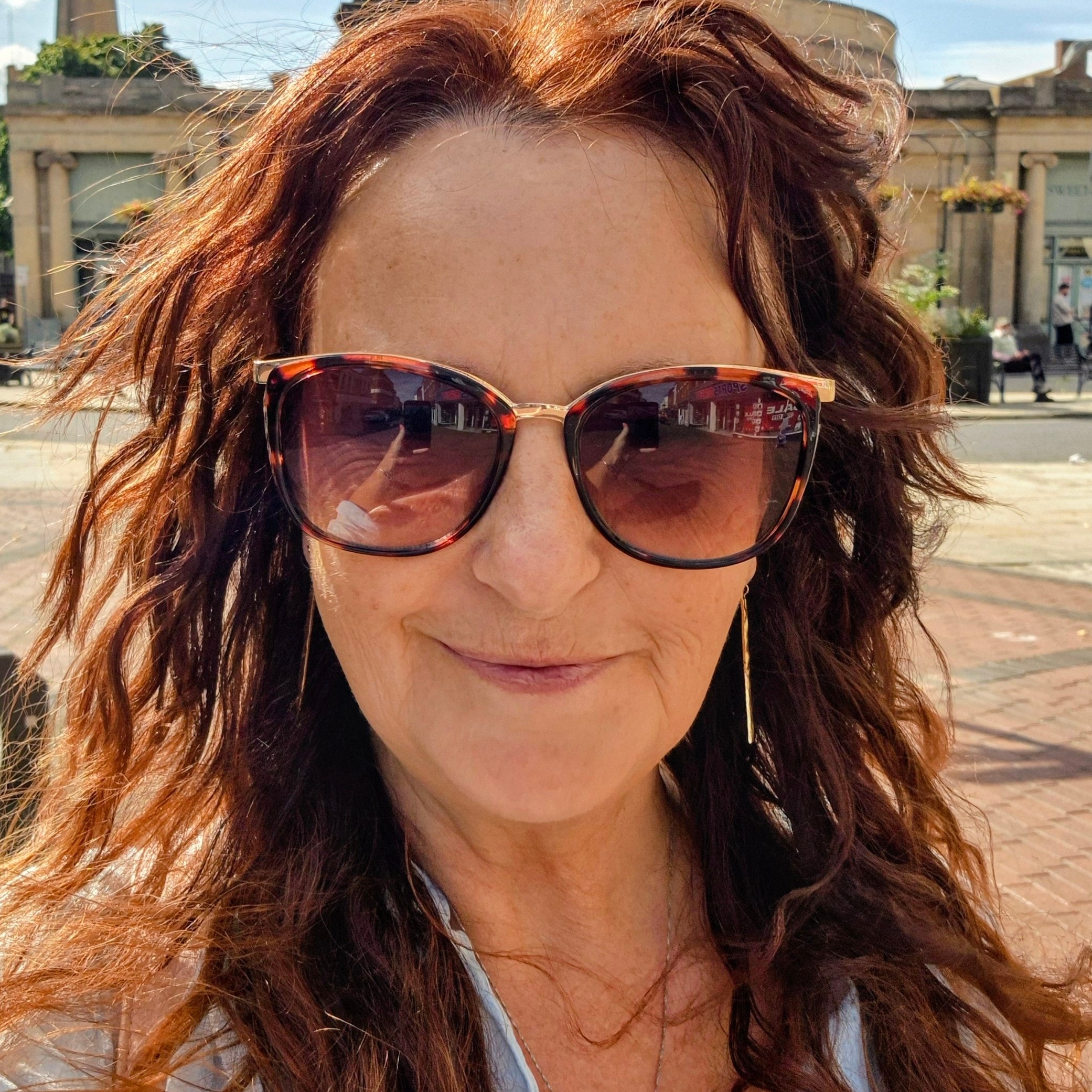Interview with Ann Moulds for Action Scotland Against Stalking
- Claire Carter

- Dec 31, 2015
- 6 min read

Today, I feel very humbled and honored to interview Ann Moulds about her charity in which she set up in Scotland to help survivors of Stalking, to help bring amendments to the law and politicians for Stalking, against stalkers and to help the victims.
What is your charity and what is it’s aim?
Action Scotland Against Stalking (ASAS) was launched as a campaigning body in 1999 with the over aim of having stalking recognized as a specific offence within criminal law, improved response for victims and to promote the rights of victims within the criminal justice process. ASAS quickly became a national and international campaign contributing to some major breakthroughs and ground breaking initiatives, most notably the introduction of the ‘Offence of Stalking’ sec 39 Criminal Justice & Licensing (Scot) Act 2010. This set the blue print for England & Wales to follow suit with the introduction of the ‘Offence of Stalking’ as an amendment into the Protection of Freedoms Act (2012). The campaign expanded to Europe and in 2011, stalking was successfully inserted into the Council of Europe’s European Convention (Istanbul Treaty), the only legally binding treaty of its kind. Ratified on 1st August, it places a requirement on European member states to recognise stalking as a specific crime. The launch of the civil justice campaign ‘Restoring the Balance of Justice’ in December 2013 followed by England & Wales in September aims to address legal loopholes and inequities within the civil system to eradicate abuse of process by stalkers. The work of ASAS will contribute to 8 out of 16 of the Scottish Governments National Outcomes – crime, communities, young people, children, healthier lives, inequalities, public services and children, young people and families. ASAS will enhance the Scottish Government’s Equally Safe’ strategy and strategic objectives of building a Safer and Stronger Scotland as well as developing a Healthier Scotland by reducing inequalities: Implementation of the Council of Europe’s European Convention for Combatting Violence Against Women and Girls and the provision of specialized services for supporting victims of stalking; the successful implementation of the Scottish Governments Victim & Witnesses Act 2014 which recognizes stalking victims as vulnerable victims, and entitlement to Justice & Safety as outlined by the SCHR Scotland’s National Action Plan for Human Rights.
What is the ‘back story’ to your work and why did you start the charity?
My own experience of being the victim of a long and horrendous stalking campaign highlighted predatory crimes of this nature were not even recognized as a serious form of violence never mind a criminal offence. Behaviours that were persistent and unwanted were often ignored or dismissed by the police, support services and criminal justice authorities rendering victims like myself vulnerable and unprotected. My experience highlighted a victim blaming culture, dismissive and derogatory gender based attitudes and a complete disregard for my safety. I was forced to engage in a system that mandated a physical attack before anything could be done. Both my stalker and the system breached every aspect of my human rights. Living with constant anxiety, fear and uncertainty impacted on my every aspect of my life and there was nothing I could do to stop it. Stalking is not a physical crime per say, it is a psychological crime and any physical element is purely a facet of this crime. If left unattended can sometimes escalate to serious violence , rape or murder whereby the stalking element is overlooked and the perpetrator is prosecuted for another crime. My stalker fitted the profile of a Sadistic sexually predator stalker who decided to remain anonymous throughout his campaign of terror. When he was eventually caught and charged he continued his lewd behavior whilst playing the system to his full advantage.
Engaging with the Criminal Justice system offered my stalker a set of rights whilst I was relegated to that of nothing more than a piece of evidence to substantiate a crime against the state. Rather than face the full judgment of the court, my stalker chose to enter into a plea bargain process. I attended court to hear him being sentence and even in spite of a social work report stating there was a risk of re-offending, in the sheriffs opinion, my stalker was not a danger to the public and with a lenient sentence he walked free from court. To gain a sense of safety I was left with no choice but to relocate over 80 miles away. In doing so I lost my business, my home of 30 years, and left behind my friends and family while my stalker continued his life as before. I was forcibly reminded that in this system, the victim becomes irrelevant and quickly forgotten, and the lasting harm caused by the crime appears to be regarded by the system as utterly beside the point. My stalker had reduced me to nothing more than a sick object of his sadistic sexual fantasy and the system tacitly colluded to reduce me to nothing more than a piece of evidence. Both shared a complete lack of compassion care or concern for the harm I suffered. I experienced a system that models the very behaviour our society finds unacceptable… the misuse of power to the detriment of others. How can we ensure recognition of the victim when the state itself is an offender? As ‘Erasmus Darwin’ stated, “He who allows oppression, shares the crime”. My story was not unique. Stalking prevails within ever aspect of our society and is one of Britain’s growing crimes. Recent Criminal Justice Survey Statistics state that 1:5 women and 1:7 men will become of a stalker. What was happening to innocent people is not justice. I decided to stand up and speak out determined that stalking should be a crime within law and to give the victim a voice and a place within the criminal justice system.

What are your hope and goals in your future work?
Legislation alone was never going to be enough. Without, education, training, protocols and guidelines, stalkers would continue to operate outside purview of the justice system, allowing their behaviour to continue unchecked, with devastating consequences for victims and making individual and community safety an unattainable goal-and even without legislative reform these were still necessary requirement. In order to dramatically reduce the number of people stalked, we needed to dramatically increase the number of stalkers who are convicted. And so the work continued to help bridge the gap between awareness and understanding and between legislation and legislative response. I continue to deliver a plethora of training on stalking to police, criminal justice professionals, government funded bodies, educational institutions and victim support agencies across Scotland as well as on the international stage. I have presented as a key speaker at conferences and seminars across the country and on the European platform and have been consulted on many developments in Scotland and abroad regarding stalking. I continue to work closely with the Crown Office, Police Scotland, NHS Scotland, Victim Support Organisations, Schools Colleges and Universities to help tackle this crime.
Do you have anyone to help you or do you manage to do all the work yourself?
Since launching ASAS 6 years ago I have worked purely on a voluntary basis with no outside funding.
As are you registered as a Charity? Can people donate? If so, where and how?
The ASAS web site is under refurbishment and will have a facility for people to donate to this important and worthwhile cause.

Do you have any hints or tips that you have found in helping people who have a stalker?
Report to the police. Keep an accurate log of all incidents. Do not respond to your stalker in any shape or any form.
What was your most amazing moment in your work to date?
In 2014 I was invited to meet with senior officials from the Crown Office and Police Scotland. I was informed they were willing to work with me to ensure this crime was fully and appropriately addressed by raising it to a high priority listed crime. I was introduced to the newly appointed COPFS National Lead for Stalking; the implementation of a joint COPFS and Police Scotland Stalking protocol; the implementation of a national stalking training programmed for all Crown Office Staff, and the development of specialized COPFS staff within each office across Scotland. This highly specialized and accredited training for COPFS staff insists that only senior Procurator Fiscals who hold this accredited qualification are be allowed to work with stalking cases. We agreed to develop a case recovery framework stalking cases that were threatening to fall through the net will be recovered where possible;
If your life was to be made into a movie which actor would you like to play the leading role?
Sophie Turner
Will you be hosting workshops in the near future?
Yes, we will be posting the times and dates on our website.
Do you have an inspirational, motivating or funny anecdote you would like to share?
When I first spoke out and launched Action Scotland Against Stalking, I pledged I would speak out and be the voice for those victims who were too scared or unable to speak out for themselves… even though I was in a vulnerable position myself… but as Ambrose Redmoon once said:
“Courage is not the absence of fear, but rather the judgement that something else is more important than fear …”
Thank you so much Ann for the interview!
Have you ever been stalked? What did you do?
Did the law help you?
Did you sue your stalker?
Please tell us what you think about stalking…
Please visit Ann’s website for more information:
























Comments